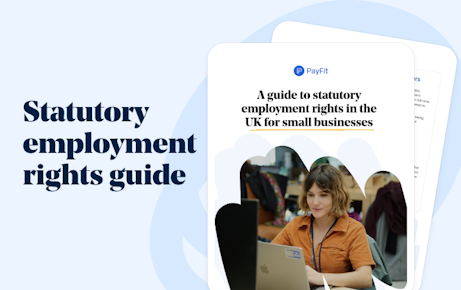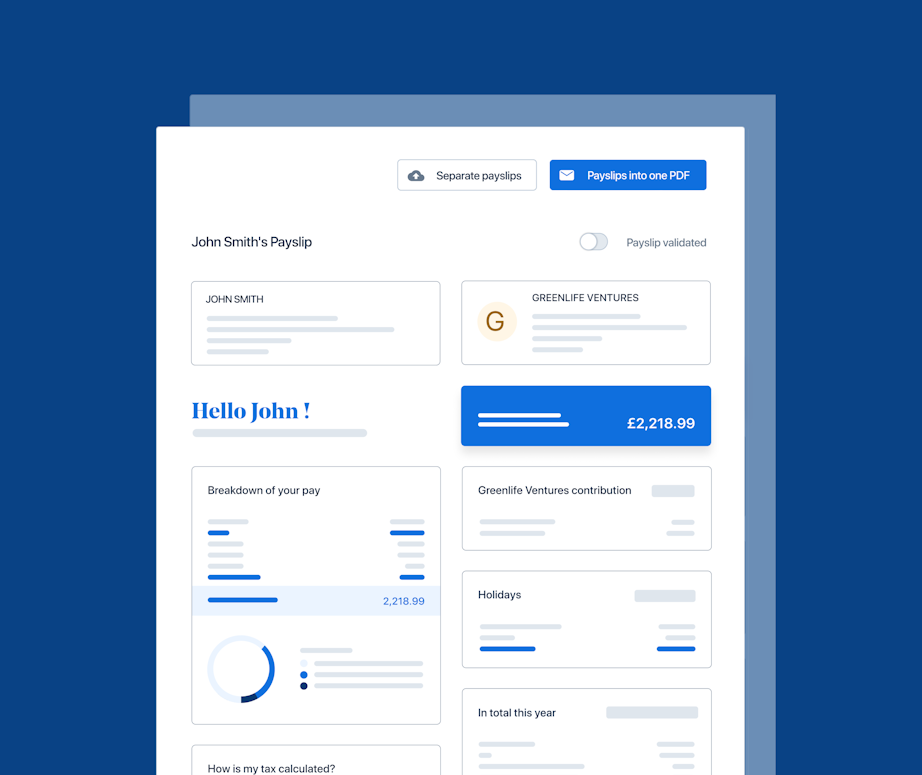Dealing with Long term Sick Leave in the UK - An Employer’s Guide

Long-term sick leave can be a difficult situation to navigate, both for employers and their employees. It presents a delicate balancing act between providing your unwell employee with the right level of care, compassion and support while balancing the interests of your company.
Let’s review what the law says about long-term sick leave in the UK and your responsibilities as an employer.
What is long-term sick leave?
Long-term sick leave happens when an employee takes an extended absence from their work due to health reasons.
If we’re taking the definition directly from UK law, then long-term sickness refers to any period away from work that lasts longer than four weeks.
It's worth noting that these four weeks don’t need to be continuous; for instance, it’s possible to link periods that last over four days or that occur at intervals of eight weeks or less. In fact, multiple long stretches of absences like this can be an indicator that someone is unwell even if they’ve not taken one big block of time off.
What are some common reasons for an employee taking long term sick leave?
A question that’s become even more complex post-COVID.
Just as there are thousands of known medical conditions, there can be many reasons for long-term sick leave. Common causes range from musculoskeletal injuries (think broken legs and arms) to more acute conditions like cancer and heart attacks.
Stress, anxiety, depression, and other mental health afflictions can also lead to long-term sick leave, as can back pain and inflammation. Burnout is a serious issue, too. According to Glassdoor, reports of UK workers experiencing burnout have almost doubled over the past couple of years.
What’s more, COVID has opened an entirely new door onto a world of increasingly debilitating auto-immune diseases, such as long COVID, which continues to baffle GPs. All of this means companies need to be extra aware of the reasons for and effects of absences - both for the company and also the employee.
What does UK employment law say about long-term sick leave?
Employment laws for long-term sick leave somewhat overlap with general paid sick leave law. In the UK, employers have to pay a minimum amount - called Statutory Sick Pay - for any sick leave that lasts between four days and 28 weeks.
This sick leave entitlement does not extend to workers (there are different rules for different types of employment status), only to employees who are earning at least £120.00 a week.
The initial four-day period can’t include any day that was spent at work. Technically, if a worker comes in on a specific day and works for longer than a minute, then this can’t be considered a sick day, even if they end up going home sick. However, the four-day period can include non-working days such as weekends and bank holidays.
How long can long-term sick leave last?
Legally, there’s no maximum limit to the amount of time someone can take for long-term sick leave. Every company needs to define what they deem as ‘reasonable’. Whatever you decide, you’ll need to lay this out clearly in your long-term sick leave policy.
What about annual leave? How does long-term sickness affect this?
Annual leave can still be accrued while on long-term sickness. In other words, employees can still build up their annual leave allowance as they normally would.
Further to this, if you have a team member who hasn’t been able to use their holiday because they’ve been on long-term sick leave, they’re allowed to carry this over to the next holiday year.
Up to four weeks of unused holiday can be rolled over, but you can increase this amount through your company policy.
Can an employee be dismissed if they are on long-term sick leave?
This is a tricky issue here in the UK. Dismissing an employee on long-term sick leave should always be a last resort. The government website clearly states this. After all, the last thing your company wants is to end up in an employment tribunal. Indeed, employees will often take their employer to court if they feel they’ve been dismissed unfairly. That’s why it’s essential to take the right steps and try to accommodate such an employee might have in a reasonable way.
One idea you could try is to allow the employee to work more flexibly (e.g. by varying their hours or making their job part-time). Not only might this help reduce their stress levels, but they might also find a role more suitable to their new needs within your organisation.
What are the employer’s rights?
When an employee is on long-term sick leave, your rights as an employer include:
Laying out the terms of your organisation’s stance towards long-term sick leave in a clear and concise policy
Defining what a ‘reasonable’ period of time off sick looks like
Setting out a plan to support the employee in question in returning to work
Dismissing an employee in a lawful and fair way if the absence becomes extensive
What are the employee’s rights?
Employee rights around long-term sick leave include but are not limited to:
Being paid the right statutory amount for taking time off sick
Still being allowed to accrue annual leave during this period
Be given ample warning before any kind of dismissal related to their long-term sick leave

How can HR teams and managers support employees on long- term sick leave?
Taking time off from work can be pretty stressful, but it's definitely easier for everyone if your company has already figured out what happens when employees are out for an extended period due to illness. Here's what you can do to reassure your sick colleagues, and there's more you can add:
First off, assure them that their job is safe, even if they need some time off (you can decide if there's a time limit or leave it open-ended).
Talk about the support they'll get when they're ready to come back—consider things like setting up an Employee Assistance Programme (EAP) for advice and guidance.
Discuss how the company will accommodate any physical or mental challenges they might be facing.
Let them know they can stay connected with someone for reassurance during their absence.
But keep in mind that having team members away for a while affects everyone.
Companies that show support, kindness, and care during tough times will benefit in the long run and reduce the pressure on employees to rush back before they've fully recovered. This means when they do return, they're more ready and able to do their job well.
Taking care of your team when they're unwell, making sure they feel supported, and helping them return to work the right way is a smart move for most businesses. Listening and supporting is key in this situation, as well as establishing a healthy dialogue. At the same time, you’ll want to find out from the employee whether they think they can realistically manage a return to work and whether or not their health will improve.









